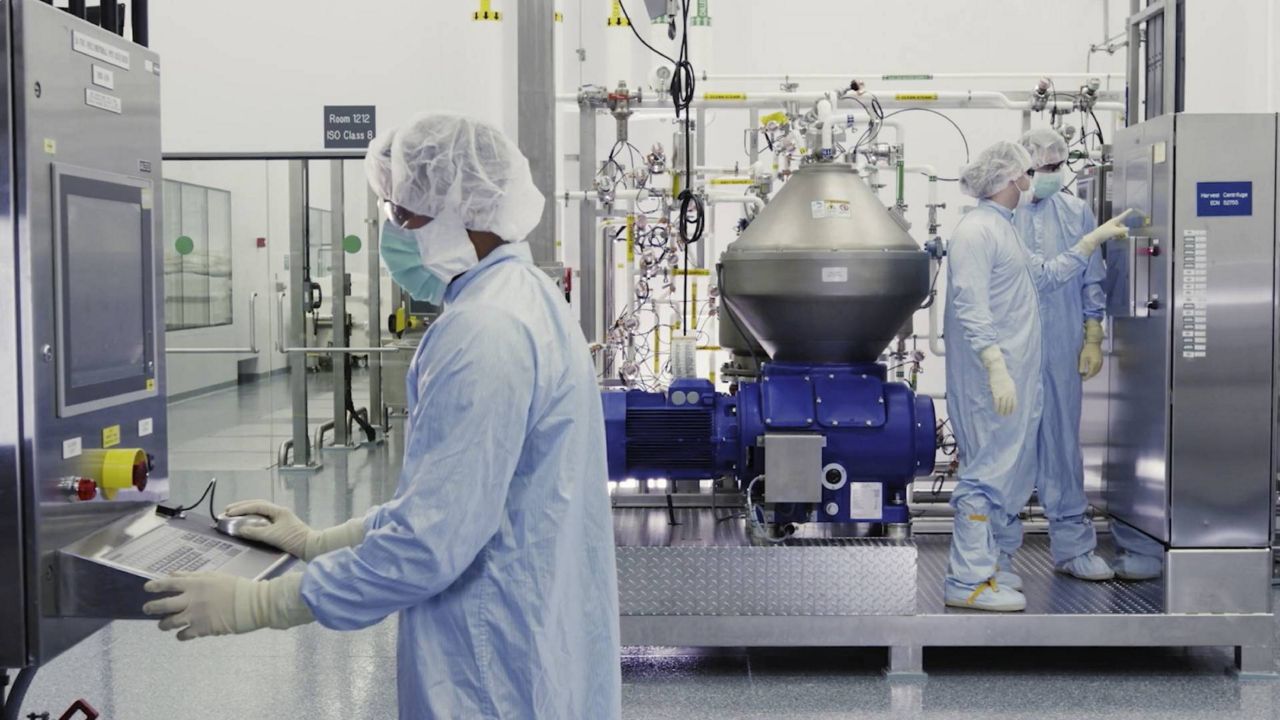Thousands of doses of the antibody treatment given to President Trump earlier this year will start being distributed Tuesday, Department of Health and Human Services officials said.
From there, the treatment, made by the biotech company Regeneron, will be administered to high-risk patients with mild or moderate cases of COVID-19 in an effort to prevent severe cases and hospitalizations.
Regeneron’s antibody cocktail, which was approved for emergency use by the Food and Drug Administration on Saturday, is meant to be used early on in a diagnosis of the virus. It’s been shown to reduce viral load in patients given the drug within days of a positive COVID test, but it doesn’t work as well on people who have already been hospitalized.
“Keeping patients out of the hospital with this therapeutic can reduce the strain on our health care system,” said HHS Secretary Alex Azar in a briefing with reporters Monday.
Officials said the first 30,000 doses of Regeneron’s treatment will be sent out to health care providers Tuesday, with a total of 80,000 sent out by the end of the month.
Doctors are instructed to use the drug on patients who are more likely to develop a severe case of the virus, including older Americans. The FDA approved the drug for patients 12 years and older.
“We’re asking them to make sure they assess the patient in front of them and that patient’s history. If they believe they are at high risk of hospitalization, that’s who they should prioritize,” said Janet Woodcock, the FDA’s Director of the Center for Drug Evaluation and Research.
The standards are the same ones set for Eli Lilly’s antibody treatment, which was approved for emergency use on Nov. 9. On Monday’s briefing to reporters, officials said 50,000 doses of that treatment will also go out Tuesday. The company has a $375 million deal to sell 300,000 total doses of its treatment to the U.S. government.
On Monday, officials also called for people who have recovered from COVID-19 to donate convalescent plasma, the part of the blood that is used to create antibody treatments. They said more than 250,000 Americans had donated so far.
The Regeneron treatment is being prioritized for places with both a high number of hospitalizations and total virus cases.
“The reason we use the total cases is because, unfortunately, we know that if a given jurisdiction is increasing now … some proportion of those patients will become hospitalizations,” one HHS official said.
While the drug is intended to be administered by a patient’s personal physician, officials said they’re also working on setting up additional sites where it can be given to people who don’t have a primary care doctor, citing the city of Baltimore’s convention center as an example.
Patients who get the antibody cocktail won’t be charged for the drug itself, but they could still get a bill for the treatment. Michael Pratt, a spokesman for Operation Warp Speed, said HHS is working to make sure cost does not deter any patient from getting the treatment, whether they are insured or not.
“There will be additional guidance … that should help in terms of making sure that this medication is affordable and accessible to any individual that needs it, regardless of financial requirements,” he said.



